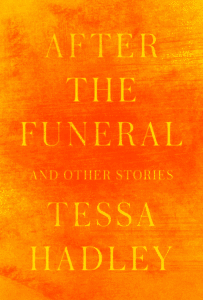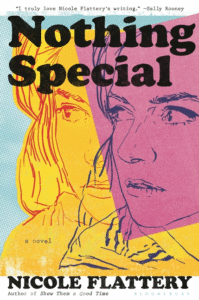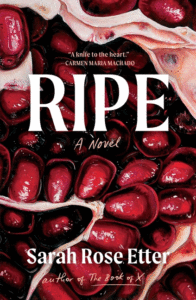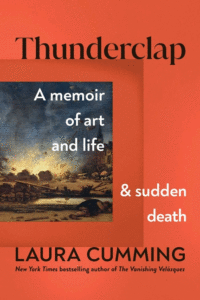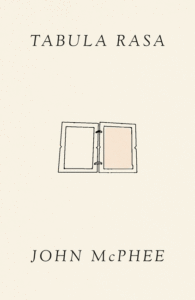
What Should You Read Next? Here Are the Best Reviewed Books of the Week
Featuring New Titles by Tessa Hadley, David Lipsky, Nicole Flattery, Laura Cumming, and More

Tessa Hadley’s After the Funeral, David Lipsky’s The Parrot and the Igloo, Nicole Flattery’s Nothing Special, and Laura Cumming’s Thunderclap all feature among the Best Reviewed Books of the Week.
Brought to you by Book Marks, Lit Hub’s “Rotten Tomatoes for books.”
*
1. After the Funeral by Tessa Hadley
(Knopf)
11 Rave • 4 Positive
Read an interview with Tessa Hadley here
“This new collection is a great introduction to her work and for those of us already familiar with Hadley, it’s a great addition. Throughout the collection, Hadley spins out character studies of (mostly) women at odds with themselves, their partners, their families, or life in general … Hadley does a wonderful job of weaving past and present together as the sisters are forced to confront their memories and relationships. And, of course, there are those moments of shining prose … Rife with deft and often beautiful prose, and astute but compassionate characterization, this is a wonderful collection.”
–Yvonne C. Garrett (The Brooklyn Rail)
2. Nothing Special by Nicole Flattery
(Bloomsbury)
4 Rave • 9 Positive • 2 Mixed
“Exquisitely disorienting … The book is driven by a kind of respiratory imagining, a panting projection that sustains both Mae and the story. She subjects her world and the people who populate it to a ravenous metamorphosing … Some might find the plot’s relentless dissociation a decelerator, but I found it brave and effective: Flattery remains so loyal to the physics of her character’s struggles, to the struggle of storytelling itself, that she is willing to risk allowing the less committed reader to wander off.
The point of this novel is not illumination; it’s almost an accident that we get to know Mae at all. Instead the novel captures, in gorgeous prose, the happy and unhappy coincidences that allow us to fall into knowing, those unexpected snags that trip us into ourselves … A revelation that is also distinctly anti-revelation, by a writer whose withholding is as vivid as her bestowing, who shows a story for what it is—something real, something fabricated, something to hide in and from, something special, something so utterly unremarkable it’s the only thing that matters.”
–Alice Carrière (The New York Times Book Review)
3. Ripe by Sarah Rose Etter
(Scribner)
5 Rave • 1 Positive
“Masterfully juxtaposing ‘wild amounts of wealth’ with ‘extreme poverty and displacement,’ Etter examines deep inequities in an image-obsessed, capitalist society. Her biting social commentary layers horror with dark comedy, using vivid imagery and striking language to great effect. Readers will savor this astonishing tour de force..”
–Rebecca Hopman (Booklist)
**
1. Thunderclap: A Memoir of Art and Life & Sudden Death by Laura Cumming
(Scribner)
8 Rave
“Genre-defying … Cumming suggests that we recall the past through pictures … Cumming clearly loves these paintings, and by weaving together vivid evocations of ones that particularly move her with brief biographies of the men and women who painted them, she invites us to share that love … Like all good elegists, Cumming, too, brings the dead to life in the very act of mourning them.”
–Ruth Bernard Yeazell (The New York Times Book Review)
2. Tabula Rasa by John McPhee
(Farrar, Straus and Giroux)
5 Rave
“A charming, breezy collection of reminiscences about projects that didn’t make it, ideas that never got fully baked, research never written up, either because the subject died or because McPhee, who was born in 1931, lost interest along the way … Few of the subjects discussed in Tabula Rasa call out for the longform treatment; McPhee’s instincts (and editors) steered him well. But there are still pleasures to be had in these 50 short chapters. Minor league McPhee is still major league writing. It’s not faint praise to say he is still more pleasingly consistent than any other writer working. There is never a dud metaphor, never a cliché … He still has stories to tell. Maybe they’re just not the ones he had the good sense to let go.”
–Mark Oppenheimer (The Washington Post)
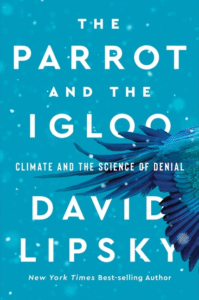
3. The Parrot and the Igloo: Climate and the Science of Denial by David Lipsky
(W. W. Norton & Company)
4 Rave • 1 Positive
“A tour guide to the vicissitudes of climate change … The tone and language of this book bounces between inviting (it is an excellent, approachable primer on the science of global warming) and irritating (the informality is at odds with the urgency of the argument). That almost certainly reflects how infuriating it must have been to trace the evolution of an idea that is a challenge to human survival …
The virtue of this volume lies in Lipsky’s dizzying account of how long we have known so much about an issue that means so much, how long we have ignored a problem that has begged not to be ignored, how much time we have wasted when time was of the essence, how clear the danger was when the opponents repeatedly asked for further clarity, how undeniable and how urgent the threat is now due to the peregrinations of the deniers”
–David Shribman (The Boston Globe)
Book Marks
Visit Book Marks, Lit Hub's home for book reviews, at https://bookmarks.reviews/ or on social media at @bookmarksreads.









